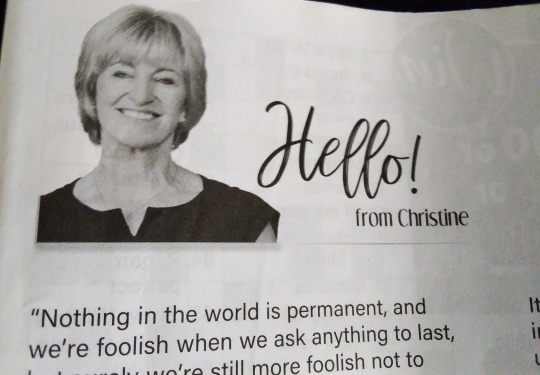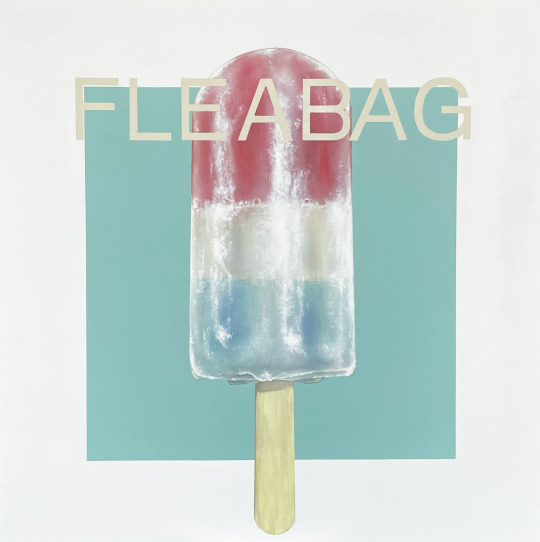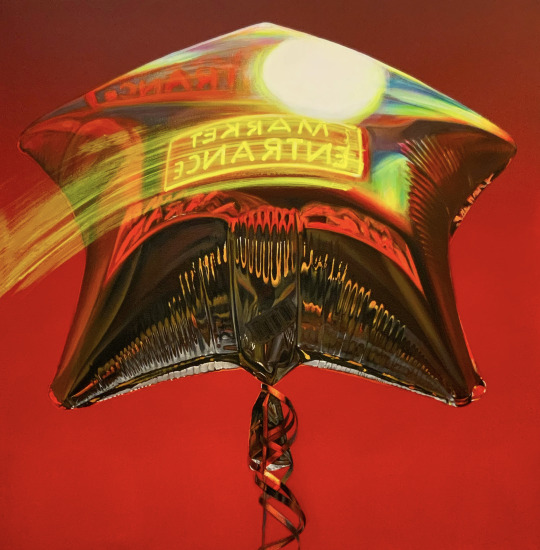#Editorial Ariel
Photo

Helmut Newton - Arielle Burgelin Wearing Gloves by Yves Saint Laurent Rive Gauche & Jewelry by O.J. Perrin (Vogue Paris 1982)
#helmut newton#arielle burgelin#vogue#photography#fashion photography#vintage fashion#vintage style#vintage#retro#aesthetic#beauty#80s#80s fashion#80s style#80s model#1980s#1980s fashion#editorial#vogue paris#yves saint laurent
2K notes
·
View notes
Text






kylie jenner by elizaveta porodina for jean paul gaultier
#kylie jenner#kardashians#kim kardashian#khloe kardashian#kourtney kardashian#kris jenner#kendall jenner#model#editorial#fashion#makeup#photoshoot#bleach#bleach brows#wig#makeup by ariel#ariel#body goals#celebrity#celeb#famous
25 notes
·
View notes
Text



Photography Rob Rusling / Fashion Anna Trevelyan / Interview & Text Mathias Rosenzweig
6 notes
·
View notes
Photo

Mary J. Blige Profile: Music Issue 2022 — The New York Times Magazine
Photograph by Ariell Bobb-Willis
Design by Ben Grandgenett
#Mary J. Blige#Design#Typography#Photography#Ariel Bobb-Willis#Ben Grandgenett#Editorial#Magazine#Spread
18 notes
·
View notes
Photo

“El fin del amor”, de Tamara Tenembaum
#el fin del amor#tamara tenembaum#argentina#ariel#libro#libros#editorial planeta#planeta#planeta de libros#book#books#bookhunter#bookslovers#booklover#bookriot#bookworld#bookworms#books with me#instabook#instabo#instabooks#currently reading#amo leer#leer es de guapo#leo y comparto#booktok#books on tumblr#books for girls#girls reading#reads
9 notes
·
View notes
Text
La encrucijada mundial: Un manual del mañana
La encrucijada mundial: Un manual del mañana
Si en sus anteriores libros Pedro Baños ofrecía un lúcido análisis de las relaciones de poder, esta nueva obra no solo describe con detalle las excepcionales circunstancias que se están dando en el presente y las que padeceremos en el futuro inmediato en nuestro mundo hiperconectado, sino que va mucho más allá y propone soluciones que sirvan a todas las personas, en cualquier país, convirtiéndose…

View On WordPress
#8434435837# 9788434435834# Editorial Ariel#Ciencias#Coronel Pedro Baños#La encrucijada mundial#Libros Guadarrama#Pedro Baños#Relaciones internacionales y globalización#tecnología y medicina#Teoría política
0 notes
Text

Quoted by the Editor-in-Chief of Jewish Currents, Arielle Angel, in her Editorial, found here
353 notes
·
View notes
Text
Gerald Kaufman (1930-2017🙏🏼🌹🕊️), British MP, speaking from the rostrum of Parliament in 2009.
Gerald Kaufman was the son of Polish Jewish immigrants. Born in the UK, Kaufman was one of the country's most famous Jewish politicians. He was also a fervent critic of Israel, calling for sanctions against the Jewish state for its policies towards the Palestinians, and comparing Israeli soldiers to Nazis.
For years, Kaufman has been one of Britain's most outspoken critics of Israel.
In April 2002, at the start of Israel's Operation Rampart to halt the wave of suicide bombings in the country's cities, Kaufman declared Israel an "international pariah" and accused then-Prime Minister Ariel Sharon of ordering "his troops to use barbaric methods against the Palestinians", according to the BBC.
Kaufman, who was Foreign Secretary between 1987 and 1992, told the House of Commons in 2002 that it was "time to remind Sharon that the Star of David belongs to all Jews and not to his repulsive government. His actions sully the Star of David with blood."
In 2004, in an editorial published in the Guardian, he called for economic sanctions against Israel similar to those used against South Africa.
In 2009, during the war between Israel and Hamas, Operation Cast Lead, he accused Israel of exploiting Holocaust guilt to justify its actions in the Gaza Strip.
"The current Israeli government ruthlessly and cynically exploits the guilt of gentiles [non-Jews] after the murder of Jews during the Holocaust as justification for its murders of Palestinians," Kaufman had declared before Parliament.
Speaking of his personal history as the son of Jewish refugees from Poland, he had said that "my grandmother was in bed, sick, when the Nazis came to her town. A German soldier shot her in her bed. My grandmother did not die to provide cover for Israeli soldiers murdering Palestinian grandmothers in Gaza."
Kaufman had compared Hamas fighters to Jewish resistance fighters in the Second World War, claiming that "Israeli army spokesman Major Leibovich was asked about Israeli murders of, at the time, 800 Palestinians. The total is now 1,000. She replied instantly that '500 of them were militants'. That's the response of a Nazi. I suppose the Jews fighting for their lives in the Warsaw ghetto could have been considered militants."
His opposition to Israel has persisted with age. In 2012, he had written an editorial published by the Huffington Post claiming that Israel was a "rogue state", and that the fact that Israel is a democracy "means that the Israeli electorate is complicit in its government's war crimes."
In 2015, he had told the Palestine Return Centre, a Hamas-affiliated association, that "Jewish money" was the reason why British Conservatives were pro-Israel.
#gerald kaufman#rip#british parliament#british politics#british parliamentary#british mp#i cry for justice in palestine#he tells the truth about israhell#benjamin netanyahu is a war criminal#war criminals#crime against humanity#palestinians#free palestine#free gaza#free west bank#free jerusalem#palestinian lives matter#palestine#stop the genocide#jews against israel#palestine will be free#support palestine#we stand with palestine#arabs are semites#arabs cannot be anti semitic#anti facist#kahanism#anti kahanism
203 notes
·
View notes
Photo

Laurence Sackman - Arielle Burgelin
#laurence sackman#arielle burgelin#photography#fashion photography#vintage fashion#vintage style#vintage#retro#aesthetic#beauty#eighties#80s#80s fashion#80s style#80s model#1980s#1980s fashion#editorial#jewelry#makeup
834 notes
·
View notes
Text

Editorial fashion photoshoot styled by me
photography by laura pardo
model ariel
#bridgetdickey#bridgetdickeydesigns#fashion#photoshoot#photography#fashion magazine#fashion photography#fashion photoshoot#editorial#fashion editorial#vogue magazine#april#spring fashion#summer fashion#black and white#bwphotography#film photography#film#wardrobe stylist#stylist#style
7 notes
·
View notes
Text
Full page editorial transcribed from a discount Variety Bumper Puzzle book? :

Hello! from Christine
"Nothing in the world is permanent, and we're foolish when we ask anything to last, but surely we're still more foolish not to take delight in it while we have it. If change is of the essence of existence one would have thought it only sensible to make it the premise of our philosophy." So wrote Somerset Maugham in his 1943 novel The Razor's Edge, and who can argue with the fact that change is inevitable?
The definition of change is 'make or become different'. We clue it in our crosswords in many different ways, such as 'Adjust', 'Modify', 'Revamp' and 'Transform'. Change may be like a breath of fresh air, or you could see things from a different angle.
Those of you who like change might agree with Sir Arthur Conan Doyle who noted that, "A change is as good as a rest". And you can probably relate to William Cowper's quote, "Variety is the very spice of life, that gives it all its flavour". Some of you may not agree and prefer to live by the adage, Better the devil you know than the devil you don't know, or A tree often transplanted, bears not much fruit.
A change of scene could mean a different job, a move to new surroundings, or a change to a different Lovatts Crossword book.
It alludes to the frequent changes of scenery in the theatre. To change one's skin is to undergo an impossible change of character or attitude.
To change hands is to pass from one owner to another, to have a change of heart is to change the way you feel about something and to change one's mind is to revise one's plans or opinion.
To change your tune is to alter your behaviour or attitude. To change the subject is to start talking about something else and a sea change is a seemingly magical change, as brought about by the action of the sea. The phrase was coined by Shakespeare in Ariel's song from The Tempest. It has come to mean a major change in general or a move to the coast, especially from the city.
Climate change refers to global warming, the current weather conditions which are straying from previous patterns of weather.
Occasionally we like to breathe new life into our magazines. Whether a change is for better or worse is something we discover from your feedback. I always appreciate hearing from our community of puzzlers, so please email me at ___________________
Happy puzzling!
7 notes
·
View notes
Text

«Séneca roza a veces ideas cristianas, razón por la cual se creyó en un tiempo que estuvo en relaciones con el cristianismo. Ya los antiguos cristianos falsificaron un supuesto epistolario entre Séneca y el apóstol San Pablo. Pero las analogías entre Séneca y el cristianismo son meras consecuencias de presupuestos análogos; así, por ejemplo, la actitud moral respecto del prójimo es una consecuencia de la idea de hermandad de los hombres, común a la escuela estoica y a la religión cristiana. Por lo demás, ni siquiera la convicción senequista de la inclinación del hombre al mal tiene nada que ver con la doctrina cristiana del pecado: por eso no necesita Séneca de ningún Salvador, ni una doctrina de la gracia y de la redención. Pues Séneca tiene la conciencia limpia. Seguramente habrá oído hablar del cristianismo, igual que Tácito y que Plinio el Joven. Pero San Agustín da testimonio de que, en todo caso, Séneca no ha citado nunca a los cristianos en sus escritos, así como de que despreciaba a los judíos y se lamentaba de la difusión de su religión.»
Wilhelm Nestle: Historia del espíritu griego. Editorial Ariel, pág.321. Barcelona, 1981
TGO
@bocadosdefilosofia
#nestle#wilhelm nestle#historia del espíritu griego#estoicismo#cristianismo#séneca#san pablo#pablo de tarso#cosmopolitismo#hermandad entre los hombres#salvador#gracia#redención#mal#tácito#plinio el joven#san agustín#agustín de hipona#judíos#judaísmo#religión#cristianos#época antigua#filosofía greco-latina#filosofía latina#roma#teo gómez otero#la muerte de séneca#rubens#museo nacional del prado
8 notes
·
View notes
Text
Ariel Parrow.







Fantastic paintings and murals from Seattle, Washington-based artist Ariel Parrow.
Parrow's work focuses on creating commentary on the methodology of capitalism and consumerism. Re-contextualizing elements of editorial aesthetics like typography and a sense of romanticism, her paintings and sculptures discuss contemporary culture using components of its own language.

THE SUPERSONIC ART SHOP | FOLLOW ON INSTAGRAM
33 notes
·
View notes
Text
“ Il poeta John Donne disse che nessuno dorme sul carro che lo porta al patibolo; è altrettanto vero che in tempo di guerra ci sono meno occasioni di sbadigliare (immagino che sia per questo che durante i conflitti bellici diminuiscono notevolmente i suicidi, spesso motivati da una noia ostinata). Ma via via che le società sono divenute sempre più individualiste e i loro membri sempre più egoisti, impegnati a godere di piaceri e di ricchezze sempre più a portata di mano, la guerra ha perduto molto del suo fascino tradizionale. Qualche ritardatario si entusiasma ancora alla notizia di guerre lontane e all'idea della guerra in generale, ma quando la bomba gli cade vicino o gli arruolano il figlio, allora perde tutto il patriottico entusiasmo. La gente non vuole problemi: non è che la pace le piaccia del tutto (c'è sempre un motivo per brontolare e poi, quando le cose vanno bene, ci si annoia), però vuole essere lasciata in pace. Solo nei paesi sottosviluppati, poveri, poco informati, collettivisti per religione o ideologia politica, malati di tribalismo assassino o suicida, si continua a conservare un certo spirito bellico. In quelli più sviluppati, da quando la classe operaia ha realizzato certe conquiste, già da tempo non si parla più di rivoluzioni e di guerre civili. A parte i trafficanti d'armi, i grandi finanzieri di settori industriali molto specializzati e i militari per vocazione (o quelli che senza esserlo, hanno la vocazione militare, che sono i peggiori), il bellicismo non ha più quell'approvazione popolare che prima non gli era mai mancata. Soltanto il nazionalismo estremo, la forma di collettivizzazione mentale più compatibile con l'individualismo moderno (i nazionalisti sono individualisti pudichi, individualisti di gruppo), continua a pompare adrenalina nelle vene di certi dementi ancora capaci di uccidere o di morire con entusiasmo. Ma se la guerra non piace alla maggioranza degli uomini, mi dirai, perché continuiamo a spendere tanti soldi in eserciti, caccia, carri armati e testate nucleari? Non è forse giunto il momento di proibire la guerra, cioè di renderla impossibile, di impedirla? Hai perfettamente ragione, figlio mio. Infatti si tratterebbe proprio di questo, di impedirla: basta lamentarsi e protestare soltanto. “
Fernando Savater, Politica per un figlio, traduzione di Francesca Saltarelli, Laterza, 1993¹; pp. 104-105. (Corsivi dell’autore)
[Edizione originale: Política para Amador, Editorial Ariel, S.A., Barcellona, 1992]
#letture#leggere#citazioni#guerra#saggistica#John Donne#Fernando Savater#società#umanità#politica#individualismo#Politica per un figlio#patriottismo#scritti saggistici#pacifismo#Francesca Saltarelli#antimilitarismo#utilitarismo#ideologismo#intellettuali europei#filosofi#nazionalismo#bellicismo#libri#filosofia contemporanea#società umane#educazione#saggi#filosofia morale#anni '90
30 notes
·
View notes
Text

eldiarioes
La Organización Mundial de la Salud calcula que los trastornos mentales serán la primera causa de enfermedad en el mundo en 2030. Y los entornos laborales pueden ser, dice, “lugares de oportunidades o de riesgo”. Las condiciones de trabajo demandantes, las jornadas extenuantes y las horas de más potencian la aparición de burnout, ansiedad y depresión. Pero, ¿es algo nuevo?
El doctor y divulgador Eduardo Vara publica 'Maldito trabajo. Sobrevivir a la cultura del sacrificio y repensar la vocación' (Editorial Ariel), un ensayo en el que aborda la evolución del trabajo a lo largo de la historia, su papel en nuestras vidas y como se ha pasado de la religión al culto al trabajo
"El concepto de vocación viene casi del sector más religioso, como si fuera una llamada, una ‘vocecita’ que te susurra y que te impulsa a que elijas un tipo de manera de estar en el mundo y trabajar. Pero, hoy en día, se ha convertido en una excusa para chantajear a ciertos profesionales y llevarles al extremo, a obligarles a comprometerse más allá de lo razonable"
"Esforzarse es inevitable y es algo fisiológico: si quiero algo, tengo que esforzarme para conseguirlo. Lo vemos en el deporte, con los agricultores en el campo o en cualquier otra faceta. Nos da cosas buenas y, si después dejamos descansar cuerpo y mente, nos puede colocar en una situación beneficiosa para enfrentar los retos futuros. Es invertir en algo positivo"
"El sacrificio, sin embargo, es un concepto muy distinto. Implica negarse o destruir cosas que queremos porque tenemos la esperanza de que conseguiremos otras. Sacrificar el presente por un futuro hipotético de progreso o bienestar, puede no ser una idea muy inteligente. La cuestión es si estamos dispuestos a sacrificar la salud mental y física de ciertos trabajadores para que la sociedad llegue a cierto modelo, sin tener claro cuándo, cómo, ni si realmente lo vamos a conseguir o es una excusa para que algunos parasiten el esfuerzo de otros"
2 notes
·
View notes
